Journalism now faces a genuine dilemma. If one is to believe the stories from Mar-a-Lago, Donald Trump is musing these days about a July announcement of his third run for the presidency. 2024 may be just around the corner. Why make such an early announcement?
Apparently, Trump believes it is his best way to recapture the public’s attention—that as an official presidential candidate, he would again be given mountains of free coverage, just as he was in earlier campaigns.
Wait a minute!, you say. He’s already being covered extensively by the media, more than any other former president in American history! It’s odd these days not to find an article or mention of Trump in the papers or on network news. He remains a big story, no doubt the major figure in Republican politics and a personality made for social media, even though he holds no official position. But, for this waiting-in-the-wings candidate, that’s not enough!
Up to this point in the madness of American politics, Trump’s plans for his 2024 campaign were bouncing along nicely until, out of the blue, the House investigation of the January 6 attack on the Capitol, carried live on national television, began seriously—and surprisingly—to cut into his oft-repeated message that he was a president “illegally” denied his 2020 re-election after a “rigged,” “fraudulent” campaign, leading to an “illegitimate” Biden presidency.
Obviously, Trump and his allies were caught with their pants down. The former president felt he had to do something—thus, his still unplanned, chaotic, all-but-public announcement of another presidential run.
That announcement, when it comes, poses a major professional dilemma for American journalism. How will Trump be covered? Editors know Trump makes news. He is outrageously controversial, and, though no one knows yet, he may actually be indicted for criminal activity relating to the 2020 election and his personal finances. How do you cover such a presidential candidate, who has been widely accused of undermining American democracy?
That Trump must be covered goes without saying. He’s enjoyed extensive, though not necessarily justifiable, coverage before—ever since his down-the-escalator announcement in 2015, his wildly unorthodox, but successful, campaign in 2016, his precedent-shattering four years in the White House, his remarkable ability to survive two historic impeachments and his ongoing audacious refusal to recognize President Biden’s victory!
During the 2016 presidential campaign, for example, he received, according to a Shorenstein Center study at Harvard, fifteen percent more free coverage than his Democratic opponent, Hillary Clinton. Why?, journalists were asked. Because, they replied, he was always “available,” a “new and different” candidate, whose comments and actions were “laced with conflict and outrage.” Trump provided them with a “cart load” of eye-catching images, bold headlines and narcissistic attractions, and the journalists couldn’t resist.
The question leading to the current journalistic dilemma, loaded with huge political consequences, is, how do you keep Trump from owning the coverage of his next presidential run? Owning, in the sense of controlling? How do journalists hold on to their independence, their editorial judgment, when they slip into the grip of Trump’s unpredictability, his hot rhetoric, his flamboyant actions? By dominating the news-making process, which clearly Trump knows how to do, he may come effectively to own it. Even if the coverage in what is called the mainstream media happens to be negative, as it most likely will be on many occasions, he wouldn’t care. He knows he would still have his old reliable Fox News and other conservative media to provide an alternative, positive spin. And, as an official presidential candidate, he would also have all the other media as well. He’ll be everywhere.
Because of the media’s immense power in a presidential campaign, Trump’s hold on media coverage gives him an almost unique form of political power, similar to that of an autocrat who controls the means of communication. In this way, Trump becomes a unique candidate, demanding a new approach to campaign coverage, which is currently beyond the grasp of most newsrooms. What was will likely be, and that’s bad news for America.
As the nation moves jerkily towards the 2022 and then the 2024 elections, journalists will inevitably face the nagging problem of saving space in newspapers and networks for stories about the pandemic, health care, climate change, global hunger, while also knowing full well that Trump and his unpredictable antics will command and, almost certainly, get their attention, and the extensive coverage that follows. Trump is known to raise TV ratings and increase newspaper subscriptions. Editors like that. Climate change stories tend to depress ratings and subscriptions. Editors don’t like that.
In honest moments, many journalists know they over-covered Trump in his earlier campaigns and during his presidency, and they don’t want to do that again. In fact, a number have taken the unusual step of setting up special sections in newspapers and on cable news to count and explore Trump’s lies and deceptions, and political reporters write bluntly about his efforts during and after the 2020 campaign to undermine American democracy. They now hold little back, but Trump has learned at least two things from this press criticism: one, he’s still treated as a major political figure, though flawed, retaining a front row seat in the news. And two, his supporters apparently love him no matter how he is covered by the “fake news.” Trump once said that if he were to “shoot someone” on Fifth Avenue, he would still not “lose voters.”
Underpinning journalism’s dilemma about covering Trump as a new presidential candidate is that America has now reached a critical point in its continuing ability to function as a democracy. Many journalists believe the United States can still succeed in this endeavor, but some seem also to believe the opposite—that we may all just watch helplessly as America, driven by Trump, sinks into a strange new form of populist autocracy by 2024.
The free, unafraid journalist remains, even in the political uncertainty of our time, one of the pivotal foundations of continuing democratic rule in the United States. The spotlight now seems to be on the crucial question of the journalist’s continuing capacity, under fierce competitive and political pressure, to be relentlessly honest, tough and unafraid in covering candidate Trump in the upcoming presidential campaign and to cover only what is really newsworthy. Be stingy.
It’s not just another good story that’s on the line; it may be our democracy.
The Brookings Institution is committed to quality, independence, and impact.
We are supported by a diverse array of funders. In line with our values and policies, each Brookings publication represents the sole views of its author(s).

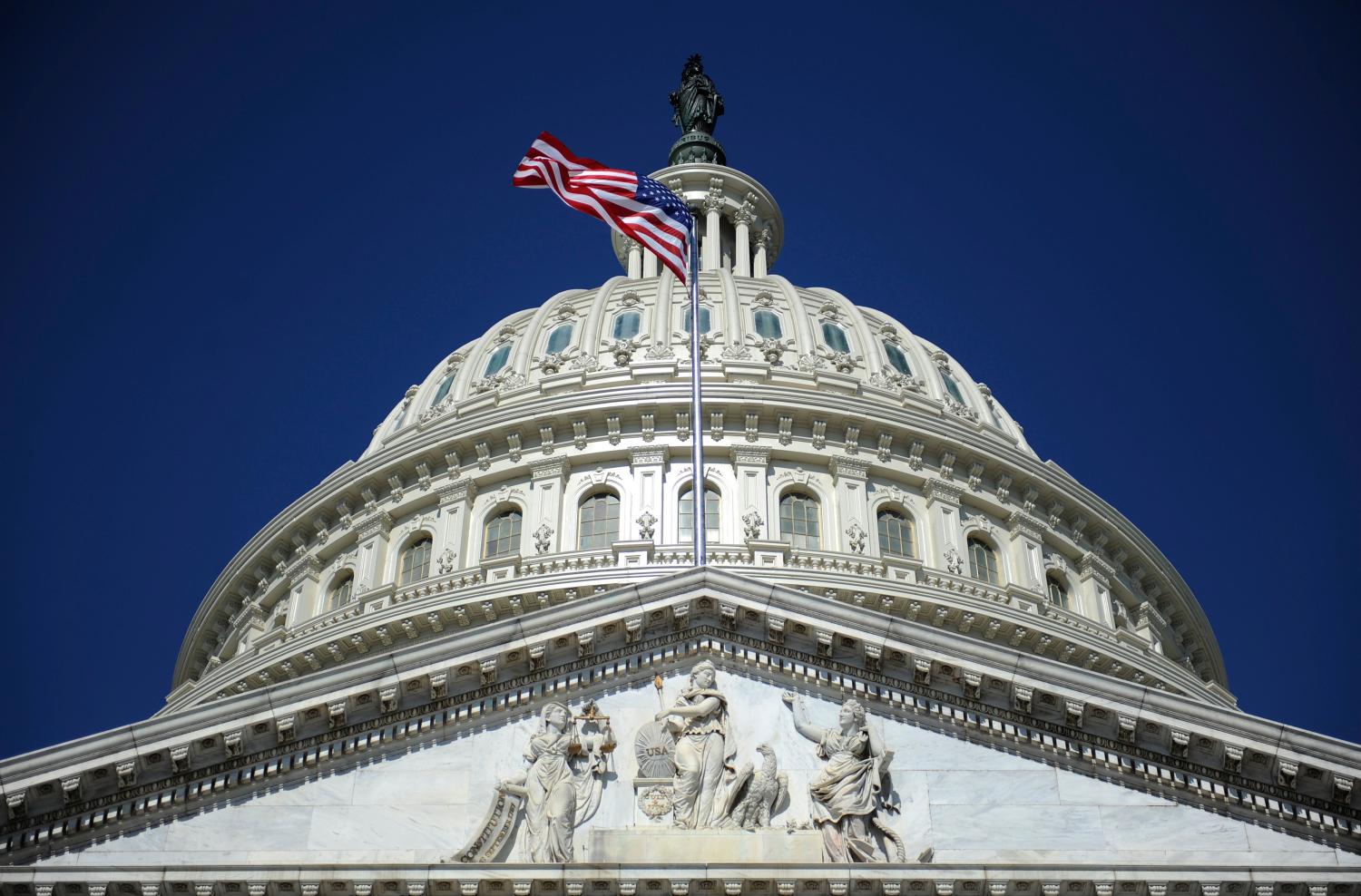
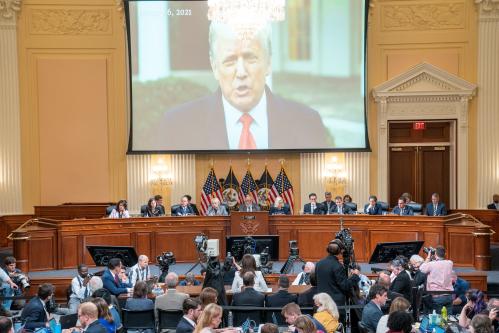
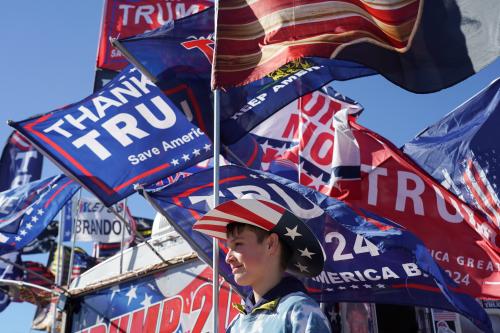
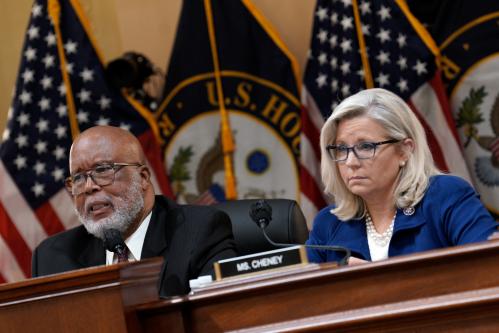
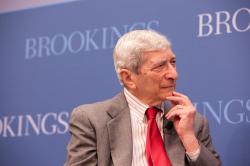



Commentary
Trump creates a dilemma for journalists
July 13, 2022